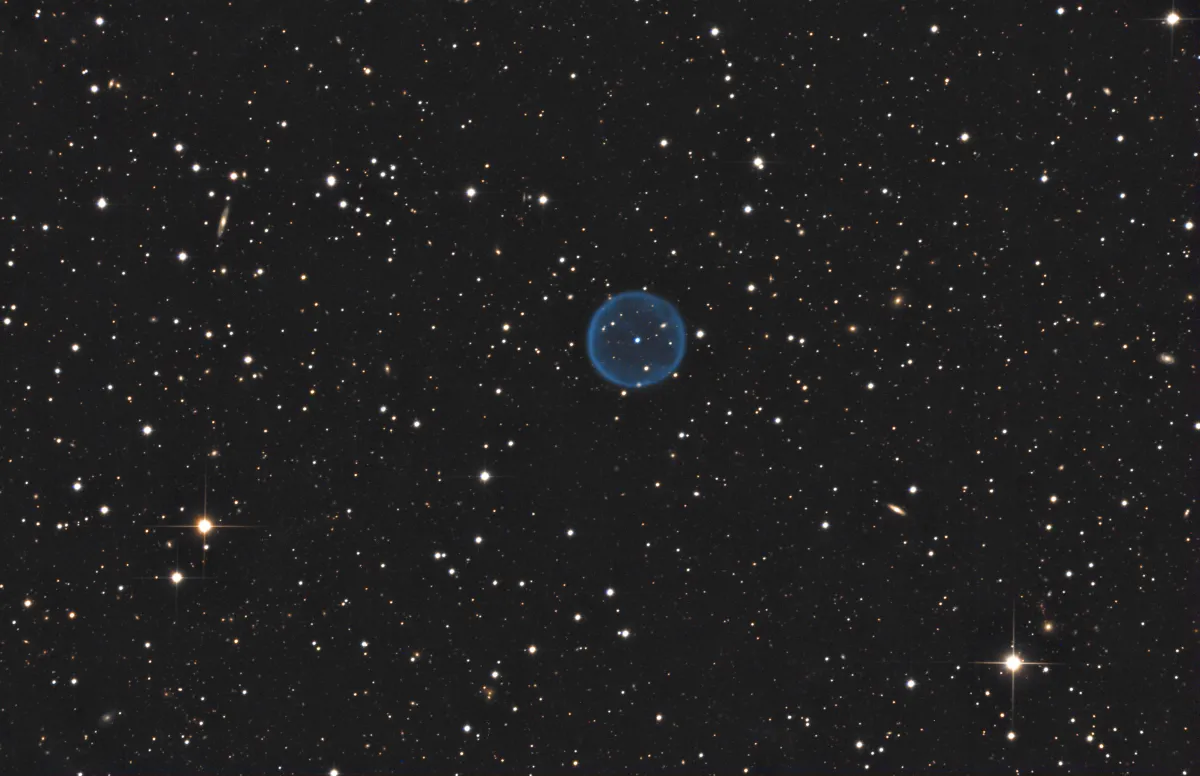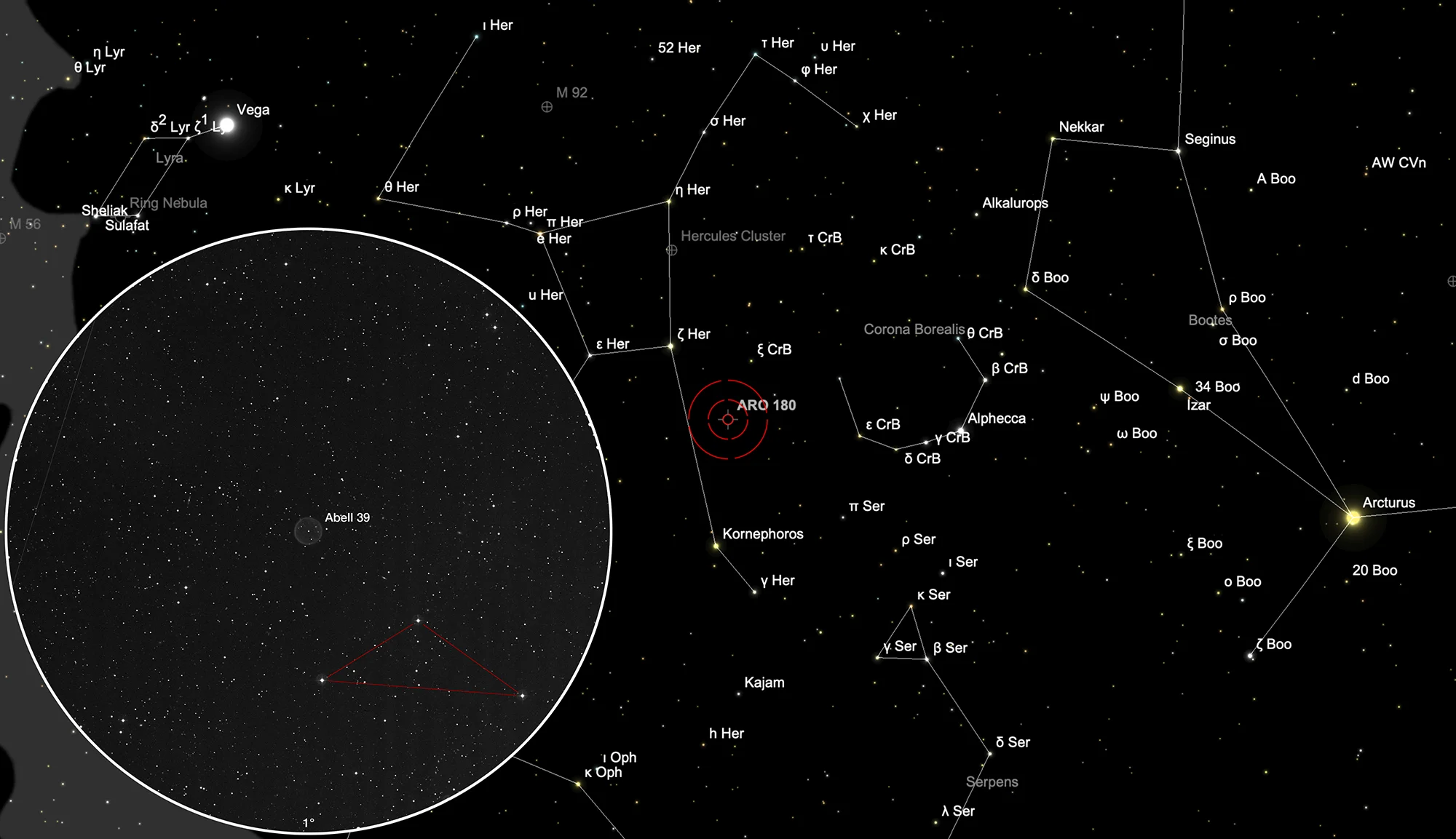Planetary Nebula Abell 39

History
The planetary nebula Abell 39 (PN A55 27, PN A66 39, PK 47+42.1) was discovered in 1955 by the American astronomer George Ogden Abell on the photo plates of the «Palomar Observatory Sky Survey» (POSS). In 1966 he published a list of a total of 86 planetary nebulae discovered on the POSS photo plates. [331, 332]
Physical Properties
Abell 39 shows an almost perfect spherical bubble like a picture book for a planetary nebula. The western edge is about 50% brighter than the eastern. The central star is also not exactly in the centre, but offset by about 2". It seems that this is due to a slightly asymmetrical ejection of matter and not an interaction with interstellar matter. It is estimated that the central star and the ejected material each have 0.6 solar masses. [333]
Distances from planetary nebulae are naturally quite imprecise. Those of Abbel 39 range from 1011 parsecs (2018) to 1175 parsecs (2008), which corresponds to 3300 to 3800 light years. Older estimates are at 2100 parsecs, about 6800 light years. The apparent brightness is measured by different filters: B 15.27 mag, V 15.6 mag, J 16.1 mag. [145]
| Designations | PN G047.0+42.4: A 39, PK 47+42.1, A55 27, ARO 180, VV' 140 |
| Right Ascension (J2000.0) | 16h 27m 33s |
| Declination (J2000.0) | +27° 54' 35" |
| Dimensions | 174." (optical) |
| Expansion Velocity | 32. (O-III) 37. (N-II) km/s |
| C-Star Designations | AG82 209, CSI +28 -16255, UBV 13929 |
| C-Star Magnitude | U: 14.10, B: 15.34, V: 15.69 |
| C-Star Spectral Type | sd O, Hg O(H) |
| Discoverer | ABELL 1955 |
Finder Chart
The planetary nebula Abell 39 is located in the constellation Hercules. The exact position can be easily determined in the wide-field eyepiece (see 1° section) by means of the prominent triangle of bright stars. On 30 May it is in opposition to the Sun and crosses the meridian at local midnight. The best time to observe it is from January to November, when Hercules is high in the sky.
Visual Observation
400 mm Aperture: Without filter nothing of Abell 39 is visible. With O-III filter it can be seen very faintly in the 21 mm Ethos eyepiece (85x) with indirect vision as a large round spot with a central star. The brighter peripheral area cannot be distinguished. — 400 mm f/4.5 Taurus Dobsonian, Hasliberg, 18. 8. 2023, SQM 21.2, Bernd Nies
762 mm Aperture: While in the 16" Dobsonian this faint planetary nebula is only indirectly visible in the extension to two bright stars, in the 30" Dobsonian even the dark central region is directly visible. The OIII filter must be used. — 30" SlipStream-Dobson f/3.3, Hasliberg, 18. 8. 2023, Eduard von Bergen
